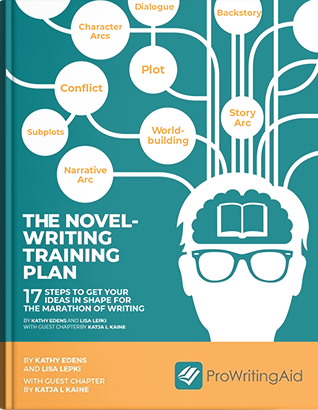
A Novel Doesn’t Write Itself
Writers write. Finishing your novel is not a one and done for the day game. It takes time.
Writing a novel requires the discipline of consistency to complete the manuscript. The challenge of finding time confronts every writer who is not a full-time author.
Building a personal writing discipline will help you complete your novel. The pages won’t languish waiting for your return. And you’ll have the confidence of knowing your work in progress is progressing.
If you are new to novel-writing, the best way to create a consistent practice is to manage your writing time. You need commitment and dedication to make it happen. But, if you build in writing as part of your life, your reward will be a finished novel.
1. Make Time
Create a schedule for writing. And then stick to it. Add your writing time to your calendar and treat it the way you would any meeting. Keep the appointment. If you are serious about a writing career, you are booking a professional appointment.
Best practice is to write every day. If your work and family life keep you from a daily routine, save it as a goal. Then create a weekly schedule that gives you a minimum of three days a week with time committed to novel writing.
Some writers prefer to get up early to write. Others do their best writing in the evening or late at night. If you don’t know your best writing time yet, vary your schedule with some early sessions, some midday sessions, and some evening sessions. Some writers use commute time as writing time. (One writer I know takes the train to work instead of driving just so he has dedicated writing time.) You’ll soon have a feel for what time of day works best for your word flow.
If you avoid making time for writing, you will feel like a failure. Scheduling time is the best way to get the work done.
2. Set Up a Space
Find a space where you want to write. It could be a home office or a corner in the bedroom. Some writers like to get away from home and go to a local coffee house or the library. Wherever you choose, make it your writing place. When you go there, you write.
Creating a dedicated writing space reinforces your writing habit. You’ll build a mental connection to writing just by being in that dedicated space.
If you want snacks to nibble or something to drink, get them ready before you start your session. That way, you can concentrate on your words.
PRO TIP: Writers who write other things as part of their day job often create a separate space just for novel writing. They know when they are there the focus is on the novel, not writing about IT or business.
3. Share Your Commitment
Once you’ve decided on your schedule, share it with the others in your household – your spouse, roommates, children. Let them know you will be unavailable. Announcing your commitment to your writing time reinforces your dedication in your mind and demonstrates your adherence to your schedule to those around you.
You may have friends who are in the habit of dropping by or calling unannounced. Let them know your schedule and warn them that you won’t be available.
4. Don’t Be Available
Once you set your schedule and announce your new commitment to your writing time, don’t be available. A teenager may want to know where her red skirt is. Two kids want you to settle an argument. Your roommate wants to know your preference for dinner. Do not reply. There are no exceptions. Only life-and-death matters, like driving someone to the hospital, should interrupt your time.
You are training others in your life to respect your writing time. Once they understand you are not available, they will honor that time.
This goes for telephone calls, email, and social media. Just don’t do it. This is your writing time.
5. Write the Words
During your scheduled time, write. No cheating by staring at a blank page or heading off to do research. This is writing time. Your first draft won’t be perfect. Don’t worry about that. Write the words. You’ll clean up your writing when you edit.
If you need background material or more research, mark your manuscript in a bright color, like red, with your personal symbol. Make it simple, like three Xs or CBL for come back later. Our minds can trick us into thinking these little spots are important enough to stop writing. Don’t be tempted. Keep writing and come back later for the missing elements.
6. It’s Novel Writing
You’ll reach your goal faster and develop your novel-writing practice if you focus on writing your story. Avoid the trap, often suggested as a habit-building trick, of writing something every day. You’ll see suggestions like letters, blogs, articles, social media posts, and the like as writing practice. No. I could go all eighth grade here with exclamation marks. Those activities are not working on your novel.
Make an agreement with yourself that your writing time is for your novel. Perform those other writing tasks outside of your dedicated writing time.

7. Overcome the Pride Bump
You won’t be brilliant at every writing session. The aim of your writing session is to write. Get the words down. Keep going with your story.
If you are a planner, your outline will help you fill your writing time with the next scenes in the story. You have a guide, use it to get you through those days when the words don’t flow. If you are a discovery writer (pantser) writing without an outline, give your protagonist and problem and then work on getting them out of the situation.
Professional writers don’t wait for inspiration, they use their writing time to keep going with the story. You will discover that the more you write during your scheduled writing time in your writing space, the easier it is to get the words flowing.
8. Avoid the Word Count Trap
Once you establish your writing habit, you will have a sense of how many words you write in a session, whether it is 30 minutes or four hours. Let your own workflow guide you in a reasonable expectation of what you can produce in a writing session. You will discover that as you consistently build your writing discipline, your word count will increase over time.
Beginning writers often set unreasonable word count goals for their writing sessions. They read about writers who write 5,000 words in a day, then try to meet that goal themselves. When they don't hit 5,000 words, they become discouraged and let go of their writing discipline, thinking they are a failure.
Trust your writing ability. Know your personal writing pace. Remember, Ernest Hemingway thought 500 words a day was a reasonable goal. He wrote until he reached 500 words and then stopped. Some days that goal took longer than others.
Learn to trust your writing pace.
9. Get Into the Story
To avoid staring at a blank page, not writing, use techniques professional writers use to get going quickly when they start the writing session.
Some writers stop a writing session in the middle of the sentence. That way, when they start, they need to finish the sentence which immediately gets them into the story.
Many professional writers start each session by reading what they wrote during their previous session. The reading gets them into the story. By the time they finish reading, they are well into the story and know what to write next.
10. Take Breaks
Just as important as focus, is taking breaks during a long writing session. Unless you are right in the middle of a good flow, take a break every 50 minutes or so. Get up. Do something else for five minutes. Go outside. Do a chore. Do push-ups. Hold a yoga pose. When you return to your writing, you’ll feel fresh and ready for more.

Breaks are especially important if you schedule a long writing session, say on a weekend. To pace yourself for the entire scheduled time, like four hours, those short breaks will help you maintain your pace during your session. Otherwise, you may find that last hour is not productive.
Make sure you schedule relaxation time outside of your writing schedule. Relaxation and recreation regenerate your enthusiasm for life and for writing. Spend time with family and friends. Take a mini-adventure to a local spot. Go for a hike. Play with your children. Have fun with your spouse.
Discipline involves self-pacing and that includes how well you live life.
Your Desire Leads Your Commitment
Your success with your novel-writing practice comes from your desire to write the book. If you want to write and finish your novel, commit to finding the time to write on a regular basis. Examine your daily and weekly schedule and look for pockets of time when you can write. Four 15-minute sessions equal an hour. Find those time spaces, be ready, and write.


